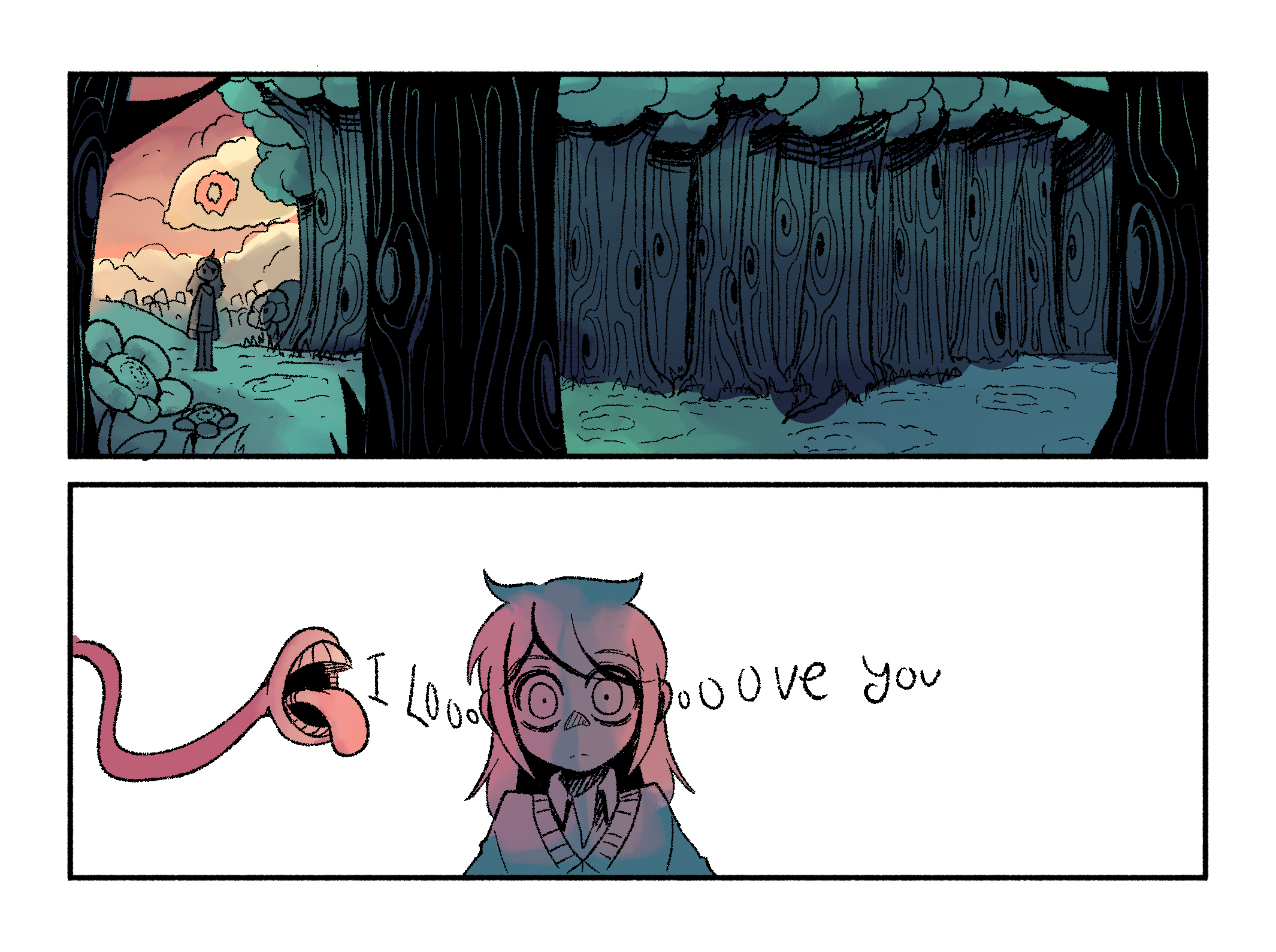Unpacking 'Omniscient': What It Really Means To Know Everything
Have you ever stopped to think about what it would truly mean to know absolutely everything? It's a fascinating idea, isn't it? The thought of having complete and total knowledge, of every little thing that has ever happened, is that, or ever will happen, is pretty mind-boggling. This concept, often found in deep discussions and captivating stories, goes by a very specific word: omniscient. It's a term that carries a lot of weight and sparks quite a bit of curiosity, too.
When we talk about someone or something being omniscient, we are, in a way, picturing a being with an infinite awareness. This isn't just about having a lot of information; it's about having all of it. Imagine possessing a full understanding of every thought, every feeling, and every action across all time and space. That's the essence of what this powerful word describes, and it's something that really makes you ponder the limits of what's possible.
So, what does this grand idea truly involve? And why does it matter to us, whether we're considering profound spiritual questions or simply enjoying a good book? We're going to explore what it means to be omniscient, where this interesting word comes from, and how it shows up in our thinking and in the stories we love. It's a concept that, apparently, touches on some very big ideas about knowledge and existence, and we'll get into all of it, just a little.
Table of Contents
- What Exactly Does "Omniscient" Mean?
- Who or What Can Be Omniscient?
- Why Does Omniscience Fascinate Us?
- Common Questions About Omniscience
What Exactly Does "Omniscient" Mean?
When we use the word omniscient, we are talking about someone or something that, quite simply, knows everything. This isn't just knowing a lot, or having a great deal of information; it means having complete or unlimited knowledge, awareness, or understanding. It's a state of having total knowledge, the quality of knowing everything. This level of knowing is, basically, without any bounds, and that's a pretty powerful thought, you know?
Tracing the Word's Beginnings
The word omniscient has a rather clear path back to its roots. It traces back to two Latin origins, which, in a way, help us grasp its full sense. If you combine the Latin roots *omnis*, which means "all," and *scientia*, which means "knowledge," you'll get omniscient. This combination literally gives us "knowledge of all." It's a straightforward way to see how the word was put together to express such a vast concept, and it's actually quite clever.
The Oxford Advanced Learner's Dictionary, for instance, provides a definition of omniscient as an adjective, giving us its meaning, how to say it, what it looks like in a picture, example sentences, grammar notes, usage tips, and even synonyms. The Oxford English Dictionary (OED) also lists four different meanings for the word, with detailed definitions, usage examples, and historical evidence. So, you know, there's a lot of background to this one word.
Knowing All: A Deep Look
To have complete or unlimited knowledge means to possess maximal knowledge. It's about having infinite awareness, understanding, and insight. This means knowing all the thoughts and actions of every character, if we're talking about a story, or every detail of existence if we're talking about something more profound. It's a quality of knowing everything, without any gaps, and that's, like, truly comprehensive.
Imagine a being that could answer any question you could possibly ask, not because they looked it up, but because they simply already knew. That's the essence of this idea. It's not just about facts, but about a deep, fundamental understanding of how everything connects. It would be nice to be omniscient, wouldn't it? Just to have that complete grasp of everything, in some respects.
Who or What Can Be Omniscient?
The attribute of omniscience is often given to certain kinds of beings or entities. It's not something we typically associate with everyday people, but rather with those who stand apart in some significant way. This quality of knowing everything is, apparently, a very special kind of trait, and it usually points to something beyond ordinary experience.
The Divine Perspective
One of the most common places we hear about omniscience is in discussions about divine beings. For many, it's a fundamental aspect of what it means for God to be sovereign over everything. The question "What does it mean that God is omniscient?" is a very common one, because it speaks to a core belief about a higher power's nature. It means God has infinite knowledge or understanding, seeing everything, everywhere, always.
This idea suggests a being with unlimited knowledge, one who has a complete awareness of all things. It implies that nothing is hidden, nothing is a surprise, and every single detail is fully known. This concept helps shape how many people think about the nature of a divine being, and it's a very central idea for a lot of spiritual beliefs, obviously.
Storytellers Who See Everything
Beyond the spiritual, omniscience also plays a big part in literature. When we talk about an omniscient narrator, we're talking about a storyteller who knows all the thoughts and actions of every character in their story. This narrator can move freely between different perspectives, revealing inner feelings, hidden motives, and events happening in various places at the same time. It's a powerful tool for a writer, actually.
This kind of narrator has complete or unlimited knowledge of everything within the story's world. They can tell us what a character is thinking even if that character doesn't say it aloud, or what's happening far away from the main action. It's a way for the author to give the reader a very broad and deep view of the story, making the narrative rich and detailed. This is, basically, like having a guide who knows every single secret of the tale, you know?
Why Does Omniscience Fascinate Us?
The idea of omniscience holds a special pull for us, perhaps because it touches on our own limits. As humans, we can only know so much. We learn, we discover, but we are never truly "all-knowing." So, the concept of a being or entity that possesses infinite knowledge or understanding is, in a way, both humbling and incredibly intriguing. It makes us think about what it would be like to have that kind of insight, just a little.
Big Questions About Knowledge
Thinking about omniscience naturally leads us to ponder bigger questions about knowledge itself. What are the boundaries of what can be known? Is there a point where knowledge becomes so vast it changes the nature of existence? These are deep philosophical inquiries that have captivated thinkers for ages. The very idea of having complete or unlimited knowledge makes us consider our place in the universe and the vastness of what lies beyond our current grasp, so it's a pretty big topic.
It also makes us wonder about the implications of such knowledge. If someone knew everything, would they still have choices? Would life hold any surprises? These are the kinds of thoughts that come up when we truly consider what it means to be omniscient. It's a concept that, apparently, challenges our everyday understanding of reality, and that's why it's so compelling.
The All-Seeing Eye in Stories
In literature, the omniscient narrator serves a very particular purpose. They allow authors to create intricate plots and develop characters with great depth, as I was saying. This narrative perspective lets readers see the full picture, understanding motivations and consequences that individual characters might not grasp. It makes stories feel rich and expansive, giving us a broad view of the world the author has built.
This storytelling technique lets us experience a narrative from a truly elevated viewpoint, seeing connections and ironies that would otherwise be missed. It’s a powerful way to engage readers and make them feel like they are truly inside the story, understanding its every nuance. This approach, basically, gives the reader a privileged position, allowing them to feel like they, too, are nearly all-knowing within that specific fictional world.
Common Questions About Omniscience
People often have a lot of good questions about this idea of knowing everything. Here are a few that come up quite a bit:
What is the difference between omniscient and omnipresent?
While omniscient means having complete or unlimited knowledge, omnipresent means being present everywhere at the same time. So, a being that is omniscient knows everything, and a being that is omnipresent is everywhere. They are distinct qualities, though often attributed to divine beings together. One is about knowing, the other is about being there, you know?
Can a human be omniscient?
Based on the definition of having complete or unlimited knowledge, humans are not considered omniscient. Our knowledge is always limited, no matter how much we learn or how intelligent we are. We can gain a lot of knowledge, but never "all" knowledge. So, no, a human cannot be omniscient, not in the true sense of the word, anyway.
Why is omniscience important in literature?
Omniscience in literature is important because it allows the author to provide a broad and deep perspective on the story. An omniscient narrator can reveal the thoughts and feelings of all characters, show events happening in different places simultaneously, and provide insights that no single character could possess. This helps create a rich, detailed, and often more complex narrative, making the story, in a way, more compelling and complete.
The concept of omniscience, whether we consider it in a spiritual sense or as a literary device, invites us to think deeply about the nature of knowledge itself. It's a powerful idea that challenges our perceptions of what it means to understand everything, and it continues to spark conversations and inspire stories today. To learn more about knowledge on our site, and to explore this page further, you can find more information. It's a topic that, truly, never stops giving us something to think about, you know?

Omnicient's Gallery - Pixilart

Omnicient by Cephalosaur on DeviantArt

Omnicient Eyes Dark Version Stock Illustration 1239608122 | Shutterstock